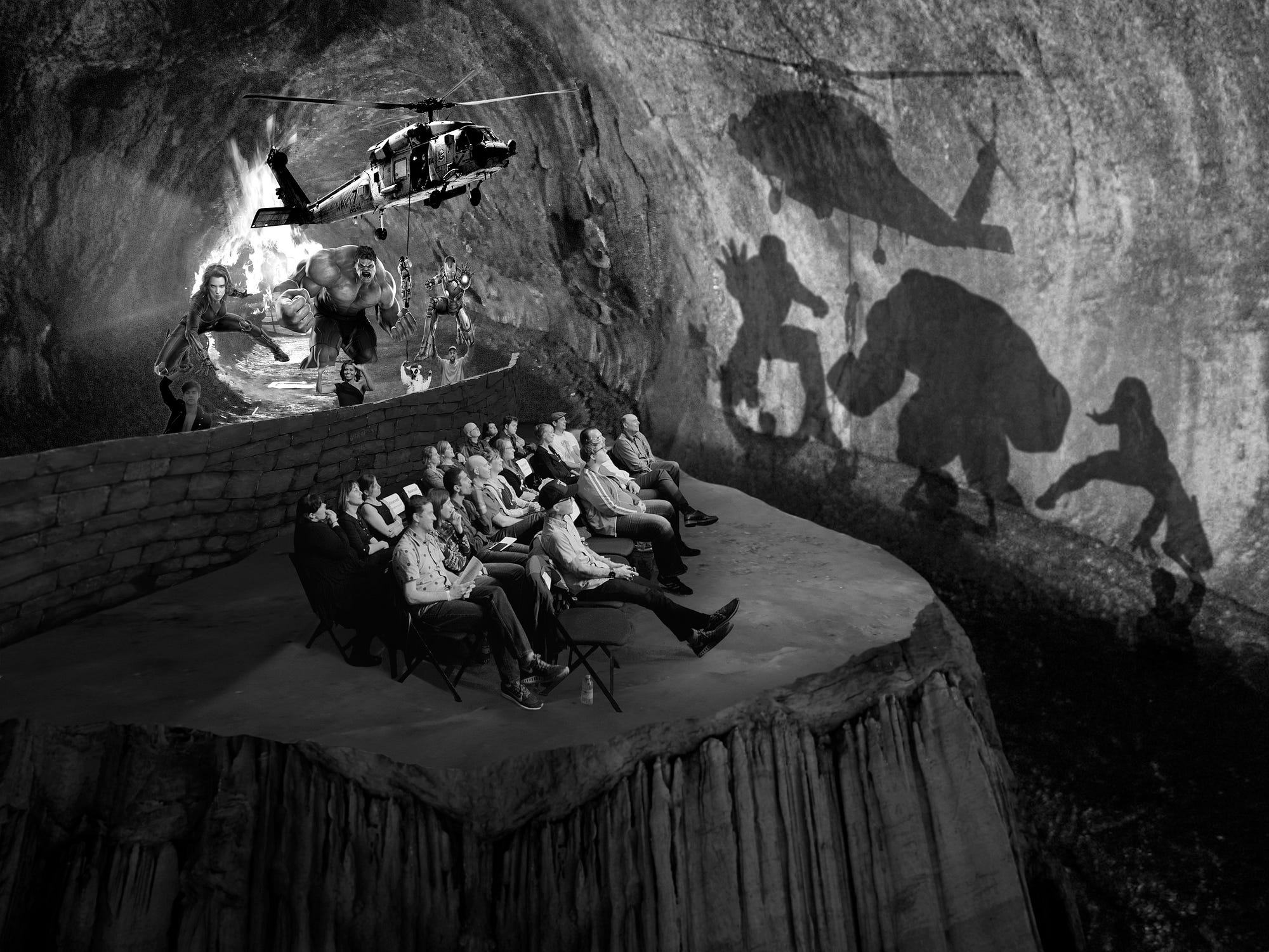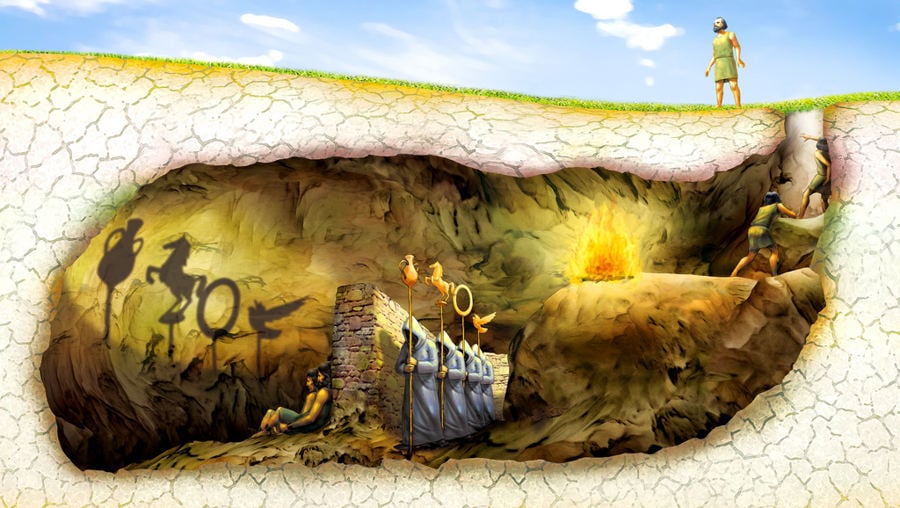- My Forums
- Tiger Rant
- LSU Recruiting
- SEC Rant
- Saints Talk
- Pelicans Talk
- More Sports Board
- Fantasy Sports
- Golf Board
- Soccer Board
- O-T Lounge
- Tech Board
- Home/Garden Board
- Outdoor Board
- Health/Fitness Board
- Movie/TV Board
- Book Board
- Music Board
- Political Talk
- Money Talk
- Fark Board
- Gaming Board
- Travel Board
- Food/Drink Board
- Ticket Exchange
- TD Help Board
Customize My Forums- View All Forums
- Show Left Links
- Topic Sort Options
- Trending Topics
- Recent Topics
- Active Topics
Started By
Message
re: Deep State Part 2: Hollywood:The spell they cast.. (pg16 Epstein = Eyes Wide Shut)
Posted on 10/27/17 at 5:17 pm to Breesus
Posted on 10/27/17 at 5:17 pm to Breesus
quote:
proper
quote:
normalize
Constructs that are being manipulated (currently in large part by media/Hollywood)
Yet another main theme in this thread...
 [/img]
[/img] I have posted this before in other threads, but here is my rant on "insanity"...
We are 2 sides of the same coin...
Indulge me...
LINK
quote:
The Meaning of Pink Floyd's Dark Side of the Moon
quote:
Dark Side of the Moon has endured through the years because it is such a well written and thought out concept album. A concept album is an album where all (or most) of the songs on that album revolve around a story or a theme. This is a contrast to most studio albums which just lay out a series of songs that are often unconnected or unrelated with the exception of the fact that they are on the same album.
quote:
So what is the meaning of Dark Side of the Moon?
Dark Side of the Moon is a concept album that discusses the philosophical and physical ideas that can lead to a person's insanity, and ultimately an unfulfilled life.
The album is a cautionary tale in two parts, the first half describes living a life that goes unfulfilled. This part of the album consists of the following tracks:
Speak To Me/Breathe
On The Run
Time/Breathe Reprise
Great Gig In The Sky
The second half of the album consists of individual songs about different ideas and concepts that are detrimental to society and can lead to madness. These songs are:
Money
Us and Them
A color You Like
Brain Damage
Eclipse
The philosophical ideas in the second half of the album are a sort of madness in their own right. They are also the root causes to the problem mentioned in the first half of the album that focuses on living an unfulfilled life.
quote:
Brain Damage
The lunatic is on the grass.
The lunatic is on the grass.
Remembering games and daisy chains and laughs.
Got to keep the loonies on the path.
The lunatic is in the hall.
The lunatics are in my hall.
The paper holds their folded faces to the floor
And every day the paper boy brings more.
And if the dam breaks open many years too soon
And if there is no room upon the hill
And if your head explodes with dark forebodings too
I'll see you on the dark side of the moon.
The lunatic is in my head.
The lunatic is in my head
You raise the blade, you make the change
You re-arrange me 'til I'm sane.
You lock the door
And throw away the key
There's someone in my head but it's not me.
And if the cloud bursts, thunder in your ear
You shout and no one seems to hear.
And if the band you're in starts playing different tunes
I'll see you on the dark side of the moon.
I can't think of anything to say except...
I think it's marvelous! Hahaha!
What do you think they were referencing???
Blatant commentary on the influence of media/ "society"
quote:
Brain Damage
Brain Damage is about losing your mind and going insane.
The first verse talks about insanity that is caused by happening what's outside your head, with the line,"The lunatic is in the grass." This would be the type of insanity that people see in the physical world, it's a type of tangible insanity.
The second verse continues in this vain, but brings the insanity into a more personal area with the lines, "The lunatic is in my hall." The lyrics have moved insanity from the outer and wider world in the first verse to the private home of the person in the second verse. This type of insanity is a bit more personal and it sounds a lot more disconcerting.
The first chorus talks about finally having a mental breakdown, potentially much earlier than a person should have a breakdown. After the mental breakdown, the final line of the chorus says, "I'll see you on the dark side of the moon." The dark side of the moon mentioned in this song is a place for insanity and ideas that are destructive. Of course since the moon is always dark, its also suggesting everyone to a certain point is mad.
The final verse now moves insanity to its most personal location, inside your head with the line, "The lunatic is in my head." The verse suggests that the person who is losing his mind will pay any price in order to make him/her sane again, and subsequently they will isolate themselves in order to stop any further destruction of themselves or others.
The final chorus again elaborates on having a mental breakdown. With the line, "And if the band you're in starts playing different tunes... I'll see you on the dark side of the moon," it would appear that the madness was caused by not being able to align your views with the views of everyone else, or most likely society in general. Ultimately that line in the song seems to suggest that people go crazy by resisting what they are told to do all of the time.
However, on the previous songs in the album, Money, Us and Them, and Any Color You Like discuss the ideas that everyone in society go along with that are insane. From a larger perspective it seems you are insane by following the ideas discussed in Money, Us and Them, and Any Color You Like, or you go insane by resisting them like in Brain Damage.
quote:
It's a metaphor for darkness, the darkness (or different ideas) that can destroy all of the positive emotions and ideas that are a part of humanity. In effect the darkness represents insanity. But like in reality the light portrayed by the moon is really an illusion. So it would appear that the album, which seems to take the dark side of the moon concept to heart is suggesting, is that everyone on some level is insane or will have to deal with madness.
Dark Side of the Moon seems to specifically suggest that there are two types of insanity. The first type of insanity mentioned on the album suggests people go insane by riding the tide. Or specifically speaking, people are insane for doing what they're told all of the time and just accepting life for what it is.
You (or Them)
quote:
The second type of insanity mentioned on the album suggests that the people that don't ride the tide realize that the people riding the tide are insane. In turn their efforts to try to convince people not to ride the tide, or their resistance to the tide itself causes them to go insane.
Me (or Us)
This post was edited on 10/27/17 at 5:27 pm
Posted on 10/27/17 at 5:17 pm to ThinePreparedAni

These themes are similar to Plato's allegory of the cave
quote:
The Allegory of the Cave, or Plato's Cave, was presented by the Greek philosopher Plato in his work Republic (514a–520a) to compare "the effect of education (pa?de?a) and the lack of it on our nature". It is written as a dialogue between Plato's brother Glaucon and his mentor Socrates, narrated by the latter. The allegory is presented after the analogy of the sun (508b–509c) and the analogy of the divided line (509d–511e). All three are characterized in relation to dialectic at the end of Books VII and VIII (531d–534e).
Plato has Socrates describe a group of people who have lived chained to the wall of a cave all of their lives, facing a blank wall. The people watch shadows projected on the wall from objects passing in front of a fire behind them, and give names to these shadows. The shadows are the prisoners' reality. Socrates explains how the philosopher is like a prisoner who is freed from the cave and comes to understand that the shadows on the wall are not reality at all, for he can perceive the true form of reality rather than the manufactured reality that is the shadows seen by the prisoners. The inmates of this place do not even desire to leave their prison; for they know no better life. The prisoners manage to break their bonds one day, and discover that their reality was not what they thought it was. They discovered the sun, which Plato uses as an analogy for the fire that man cannot see behind. Like the fire that cast light on the walls of the cave, the human condition is forever bound to the impressions that are received through the senses. Even if these interpretations (or, in Kantian terminology, intuitions) are an absurd misrepresentation of reality, we cannot somehow break free from the bonds of our human condition - we cannot free ourselves from phenomenal state just as the prisoners could not free themselves from their chains. If, however, we were to miraculously escape our bondage, we would find a world that we could not understand - the sun is incomprehensible for someone who has never seen it. In other words, we would encounter another "realm," a place incomprehensible because, theoretically, it is the source of a higher reality than the one we have always known; it is the realm of pure Form, pure fact.[1]
quote:
Return to the cave[edit]
Plato continues, saying that the freed prisoner would think that the world outside the cave was superior to the world he experienced in the cave; "he would bless himself for the change, and pity [the other prisoners]" and would want to bring his fellow cave dwellers out of the cave and into the sunlight (516c).[3]
The returning prisoner, whose eyes have become accustomed to the sunlight, would be blind when he re-enters the cave, just as he was when he was first exposed to the sun (516e).[3] The prisoners, according to Plato, would infer from the returning man's blindness that the journey out of the cave had harmed him and that they should not undertake a similar journey. Socrates concludes that the prisoners, if they were able, would therefore reach out and kill anyone who attempted to drag them out of the cave (517a).[3]
This post was edited on 10/27/17 at 5:26 pm
Popular
Back to top

 1
1





